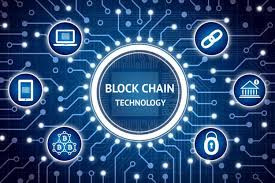Introduction
The mind-blowing speed of the growth of technology has been a controvertible debate lately. Blockchain and smart contracts have recently been the most talked about technology advancement yet the impact of them on legal processes continuously remain unknown. This presentation, therefore, serves to analyze the role played by these int Indian Arbitration.

Blockchain has been defined as an open distributed ledger that can record transactions between two parties efficiently and in a verifiable and permanent way. Blockchain’s working principle is based on the concatenation of each transaction or movement as a block to the system so that the platform continuously and frequently grow. The entire system is updated with each new transaction and it becomes visible to the concerned parties all over the world.
In arbitration, specialized decision making is the aim and is used as an alternative to classical dispute resolution. In this regard, banks are considered as intermediary institutions in financial transactions. Blockchain system aims to substitute these banks as intermediaries hence the following advantages.
Transactions carried out by banks and credit institutions are more costly or more expensive at every stage. Furthermore, completing these transactions takes a long period than that taken when using a blockchain system. Therefore, replacing such a system using the blockchain system will help with efficiency, at low costs, and in a short period.
The blockchain system has a decentralized structure. This means that there is no higher authority when it comes to control and implementation. The government’s regulations and authority do not govern the blockchain system. It is governed by encryption methods using algorithms. This also means that there is no need for an intermediary party.Money is transferred from one party to the other without the inclusion of banks as is done in the banking sector.
The blockchain system is an open platform, it can be used by anyone without any permissions or approval. Users are part of the system having their identifier keys. This makes it more convenient and secure as it is based on the will of the users. Whoever is part of the system is in a consensus on the running of the system.
Moreover, information security is very vital in the blockchain system. Every user is identified on the network with either public or private keys. Algorithms and passwords are used to create these keys hence the confidentiality of every transaction made is ensured by these algorithms.
The blockchain system eliminates human error to a greater extent as long as the code and algorithm designs written for implementation are flawless. The algorithm underlying the transaction determines whether the transactions are free from human influence and human error as they are based on algorithms that are mathematical models.
When a dispute arises, the arbitration process takes effect. Automation of procedures and documents is required by the nature of the system. After all this and after the appointment of an arbitrator, the process continues as in normal arbitration proceedings, however, all transactions will be done online. The arbitration award is given outside of the blockchain system as it requires human judgment. This is how blockchain arbitration works.
According to Nick Szabo, smart contracts are a set of promises, specified in digital form including protocols within which the parties perform on these promises. Most of today’s smart contracts are implemented in platforms that rely on distributed ledger technology. Most people assume that since smart contracts perform automatically, the chances of potential disputes are low. This is not true as the intersection of contract law and code creates new areas of potential disputes. Although smart contracts pose a huge potential of benefits such as increased security and low costs, disputes will always be there.
A smart contract may result in several dispute resolution challenges. Since arbitration is one of the alternatives in dispute resolution, it can also be negatively affected by these smart contracts.
In cases where smart contracts are executed pseudonymously, it could be difficult to claim someone. The evidence as to who is responsible for the loss resulting from bugs in the operating system, defective code, or corrupted message may be impossible to find. This makes it impossible to resolve such issues.
Since smart contracts operate through distributed computers, it may be challenging to determine the jurisdiction and governing law that applies to a dispute as these computers may be used anywhere around the world. Moreover, the risk of satellite dispute is increased.
Part of the key characteristics of smart contracts which may be deemed as an advantage is the fact that they cannot be revoked while the transaction remains indelibly recorded on the blockchain. This system disadvantages a party who is entitled to terminate the transaction if needs be.
Evidence about proprietary hardware and software may be involved in some smart contract disputes. This may be risky since proprietary information and source code may become public, which will then lead to material commercial ramifications for either of the parties involved.
Although these systems may be promoting efficiency and low costs, the use of blockchain systems and smart contracts will result in one of the key disadvantages of technology which is commonly known; increased rate of unemployment, as these systems, replace human labor which will, in turn, leave some people unemployed.
Image Source
Author: Moyo Sindisiwe Londiwe, Parul University

